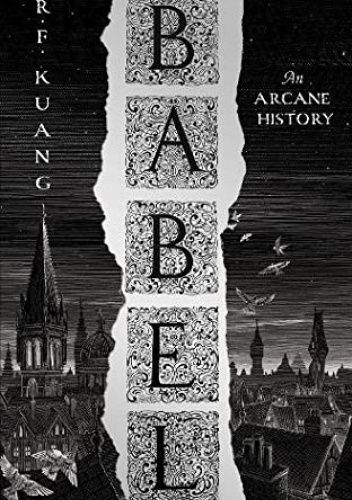

“And this is the central conflict in ‘Babel’ and in a lot of my other work. And it is easy to forget all the things that happened to you while you were there and all the things the university stands for,” she says. The illusion is so beautiful because Oxford is so beautiful. “Babel” explores the relationship between academia and violence, inspired by Kuang’s own experiences attending Oxford as a graduate student. "I think also about the history of institutions like Oxford and Cambridge and Harvard, Yale, Princeton and how they were deeply involved with the slave trade, with colonialism, not just as these by products of, ‘Oh, we accidentally received slave money to fund this institution,’ but rather institutions that were central to the replication of racist ideologies that justify colonialism and justified slave societies.” “The university has always been complicit in oppression,” she says. They're all part of the power dynamics that shape our real-life society. While “Babel” is a work of fiction, Kuang says in reality there are no neutral universities. Robin must choose between pursuing his love for learning or betraying his home country.

The professor wants him to attend a magical school at Oxford University and train to be a translator.īut once Robin reaches Oxford, things quickly take a sinister turn as he realizes that his work as a translator means committing great evil on behalf of the British empire. The novel begins in 1828 when Robin Swift, a Chinese orphan, is brought to Britain by a mysterious professor. Kuang's fans may need even more therapy after they read “Babel” - which doesn't shy away from the realities of empire. “I would like to be able to bill her for my therapy as well,” Hossain says. Sweeny tunes in for “really good characters that go through too much.” And Hossain is hoping for emotional reparations. When asked what new readers can expect from Kuang’s work, fans Maura Sweeney and Tazrin Hossain offer one word: “pain.”
:max_bytes(150000):strip_icc()/TowerOfBabel-58c230803df78c353c21ecc9.jpg)
This "soul-crushing" element is what ties many Kuang fans together. “I thank her for crushing my soul as many times as she has.” Producer Kalyani Saxena interviews author Rebecca F. “Every book that I've read by I haven't wanted to put down, even though they're soul crushing and heartbreaking,” Drago says. In line for the book launch, Leah Drago, a long time reader of Kuang’s work, brimmed with excitement. Kuang, who is best known for the gut-wrenching " Poppy War" fantasy trilogy, explores translation as a tool of imperialism in “Babel.” Kuang speak about her new book, " Babel: An Arcane History of the Oxford Translators' Revolution." On a balmy summer evening this August, fantasy fans are lined up outside the Brattle Theatre in Cambridge, Mass., to hear Rebecca F.


 0 kommentar(er)
0 kommentar(er)
